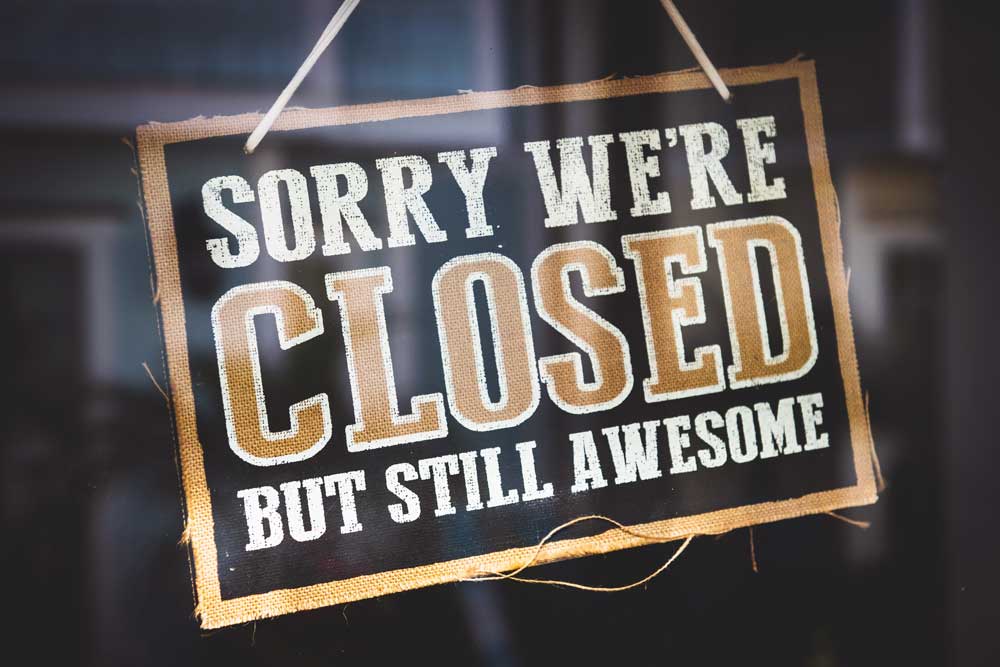As the UK emerged from the first Covid-19 lockdown last autumn, one English council chief executive was asked if he had reopened the libraries yet and replied, “Why would I want to reopen the libraries?” And without doubt the same question has been at least pondered, if not asked openly, in most local authorities up and down the country.

But, while library devotees may react with horror to this existential threat, it is a not unreasonable question from the point of view of a chief executive or corporate director, so this month I’d like to look at potential answers. More hard-pressed than ever to balance service priorities and budgets, should they reopen the libraries or, at any rate, should they reopen all the libraries?
Morag Kinniburgh for BBC News Scotland reports a “Quarter of libraries shut despite lockdown easing” and although I’ve not found a similar assessment for England or Wales, anecdotal evidence suggests that the picture is unlikely to be any different. Libraries Connected has made available an updated Service Recovery Toolkit, but I want to focus not on the ‘how’ but the ‘why’ of reopening public libraries. So here’s how a conversation on this topic with a reluctant chief executive might be expected to go:

Q: People managed online while the libraries have been closed. Didn’t e-book use soar?
A: Yes libraries up and down the country reported a surge in e-books loans and many library services took steps to set up a virtual platform so that people could still enjoy and access as much as possible: a good example is Nottinghamshire Inspire who quickly created the Inspire Online section on their website.
But … there’s always a ‘but’ isn’t there?! … the range of e-books available is still limited, especially for anyone who wishes to study, and online use has only been able to partially make up for being able to use libraries in person. As this article suggests, “After a year of digital learning and virtual teaching, let’s hear it for the joy of real books”.
Perhaps most importantly, increased online use has highlighted the digital divide for those who for a variety of reasons don’t, or simply can’t afford, to get online and indeed used to rely on visiting the library to do so. These can often be the people that generate most demand on public services, but a library service can play a key role in channel shift to online access.
There has been a negative impact on older people who’ve been particularly prone to isolation but are resistant to digital by default. And isolation can in turn can lead to depression and then place greater demand on social care services.
In short, people managed without many things during the pandemic – meeting friends and family, eating out or visiting the pub, going to the theatre – but as we’re now seeing they’re desperate to get back to doing all these things, so why should people have to go on managing without visiting a library?

Q: Library use was falling anyway before the pandemic. People don’t read any more. Book loans are falling and have been for years.
A: Yes it’s true that, as the CIPFA Public Library Statistics show, book lending has consistently fallen for many years and personal visits to libraries have also generally dropped off, partly reflecting the online use we’ve just discussed. But a good library is much more than a repository for books. Imaginative librarians throughout the country offer a range of other services and activities that not only engage people but also support key local priorities such as physical and mental health, education, access to jobs, homelessness, loneliness, the list goes on. In fact, this is happening throughout the world, as illustrated by the examples in my May blog.
So perhaps the answer is not to ‘do without’ libraries but make the buildings, staff skills and other resources, work harder to play a key role addressing your local agenda and thus enable savings in other areas?

Q: They’re expensive to run and the authority has other more immediate pressures like care of the elderly or homelessness.
A: In relative terms, spending on library services is not that high and significant cuts in spending have been achieved over recent years. As The Bookseller reported, “Library spending fell by £20m in 2019/20” alone. So my first counter-question is, “Have you actually carried out a comprehensive exercise to look at the efficiency of your library service, including benchmarking against comparator local authorities?” And if the answer is ‘no’, then how do you know whether the service is in fact expensive, or whether it’s offering value for money? The cost per head and cost per user of library services are lower than many other council services. Indeed, is the library service in fact helping to address other service pressures, or could it perhaps be commissioned to do more?
When Caroline Dinenage, the Libraries Minister, spoke at the Libraries Connected seminar in early December she spoke about “At a local level, making the case to your council decision-makers about how libraries will help them deliver their wider ambitions for local people”. So, don’t write off libraries as a model from a past age and a drain on resources: there are countless examples of library services that are operating right at the sharp end of community capacity building and enhancing local quality of life.

Q: Half of them are in the wrong place anyway.
A: Ha! Now here I have to agree … not half perhaps, but many libraries are no longer located in the best place to support today’s centres of population. In my April blog, I asked “What is the ideal location for a public library”. In that blog, among other options, I discussed whether the answer in many cases may be shared service provision with health centres, sports and arts centres, or access points for council services. But the key point, which I’ll address below, is not simply to get rid of library buildings but to think about whether and how the services could be more effectively and more efficiently provided via another outlet or service delivery model. In any case my mantra is to look at local need, then talk about ‘library services’ not ‘libraries’ (the buildings) and find the best way to deliver a service that really meets local priorities.

Q: Can’t we just reopen one or two?
A: In simple terms, No. Statute (Public Libraries and Museums Act, 1964) and legal inquiry (e.g. Charteris Report 2009) provide a framework not only for what should be provided but the required steps if you wish to substantially review library service provision, including rationalising the building network. Just keeping a couple of libraries won’t cut it.
Key requirements for change are to do so within a wider policy framework and as part of an exercise to define the future vision and role of the library service, and not least to consult meaningfully on options. To be blunt, why wouldn’t you want to do that anyway? My personal opinion is that, if a library service hasn’t been comprehensively reviewed within the last 5-7 years and doesn’t have a clear vision with a delivery model that’s achievable within available resources, then this needs to happen. And this may be expected to result in a network of library services that is delivered differently, and potentially with less library-specific buildings.
Meanwhile, don’t just use the problems of reopening following Covid lockdown as an excuse for failing to open your current libraries until you’ve had the opportunity to come up with an imaginative strategy for the future of the service.

Senior managers shouldn’t be afraid to ask these questions – libraries aren’t untouchable by right – and service directors and heads shouldn’t be afraid to answer them. Perhaps the local service delivery model does need to change, but this must keep in mind the warning that “The value a society places on knowledge, learning and the creation and dissemination of ideas can be judged by how it treats its public libraries”. Nick Poole, CEO of library and information association CILIP has warned: “How a civilised nation treats its libraries is a barometer of how it values its citizens. And in today’s Britain, a Britain of austerity and inequality, we should be outraged at how our libraries are being treated”. Ideally let’s keep our libraries open and awesome.
Geoff Allen is a senior associate consultant with Activist Group. The views expressed in this blog are his own and do not necessarily reflect the opinions of Activist.
